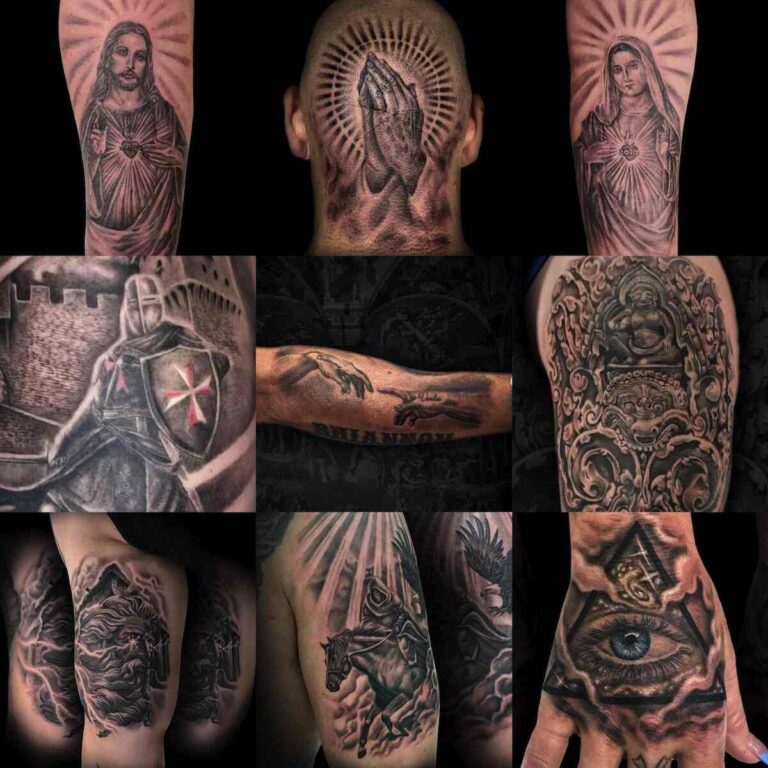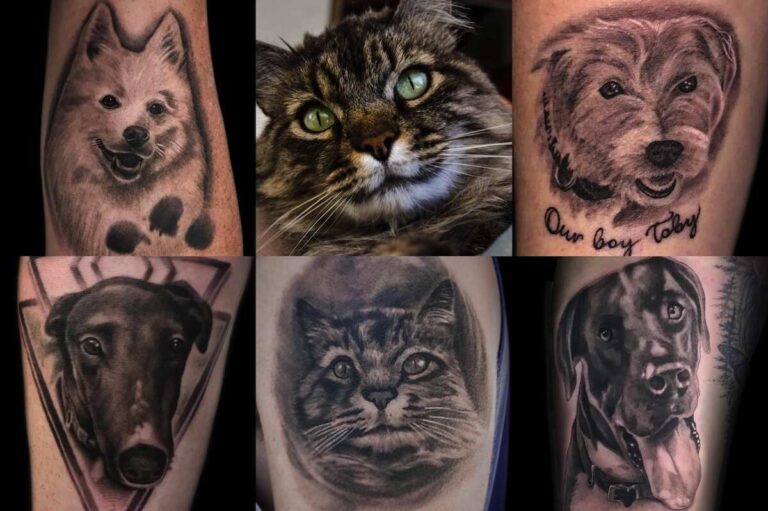
Imagine the feeling of walking down the street and seeing someone pass by with the exact same tattoo that you have. While this can certainly occur for anyone who received a tattoo from flash (pre-designed tattoos in shops that are ready for instant application) and get-what-you-get tattoos, you don’t expect it if a design was made specifically for you.
Logically, the question of “Can you copyright a tattoo” is commonly asked by tattoo artists who want to protect their work. At press, the tattooist who designed LeBron James’ tattoos is in a legal battle with Take-Two Interactive Software for copying over his work on to the virtual LBJ for NBA 2K video game. The lawsuit may or may not seem ridiculous to some, but you can appreciate where the tattooist is coming from. However, this article is not about a tattooist’s rights. It’s about a client’s, should they have designed their own, or done so with the help of a tattoo artist in a studio. If this applies to you, then your tattoo was intended to be unique to you. To find that it ended up on some random person’s skin would be a serious insult. This may occur if someone admired your tattoo on your social media profile, saved the image, and took it to a tattooist. A professional and ethical tattooist will state that the work should altered to be more unique to the individual, tweaking it somewhat, but not all artists hold themselves to the same ethical standards.
So to rephrase the question; can you copyright a tattoo, not as a professional tattooist, but as an individual who wants to protect a unique work body art on their own skin? Let’s review.
What Clients Need to Know About Copyright Protecting a Unique Work of Art That Was Made for Their Own Tattoo
What the Law Says
Copyright law in Canada indicates that it would be generally accepted that unique tattoo designs meet the minimal requirements of originality and fixation (the act of it being placed on a physical form) required to gain the protection of the artistic work.
If you and the tattooist came to a binding agreement where both of you (on a collaborated design) would copyright the work, and that compensation would be provided to either one upon combined approval for the tattoo to be used somewhere else, then it’s possible. If you designed the work on your own, and simply hired the tattooist to transfer it and apply it to your skin, then you could initiate copyrighting of the work as intellectual property (IP) on your own. Visit the Government of Canada resource on copyright protection.
Practicality of Getting it Copyright Protected
Seems like a lot of work, doesn’t it? It can be BUT it depends on how important the design is to you. If you are an artist (but not a tattooist) then it makes sense to get into the habit of protecting your work. People are surprised to learn that copyright fees are quite affordable in Canada, at under $100. If you’re not a professional artists, but the design is something that you’re very proud of and/or is very personal, then it may be worth the small investment. While it may not stop someone from stealing your design from social media (how would they know if it was copyright protected?) it would offer legal recourse should you see that they (or a tattooist) used the design. You can make a few dollars or force them to get the tattoo covered-up should you have the resources to take it the matter to court. Again, none of this is practical, but we understand the desire to protect something that means so much to you. Do as you wish.
Make the Copyright “©” Part of the Design
May we suggest one fun and interesting way to let potential design thieves know that the tattoo is distinctly yours, even if you didn’t get the work copyright protected? Have the “©” symbol tattooed next to your tattoo to show that it is indeed unique. This will dissuade most tattooists and people from borrowing the work without altering it enough to make it “their own” (so to speak).


